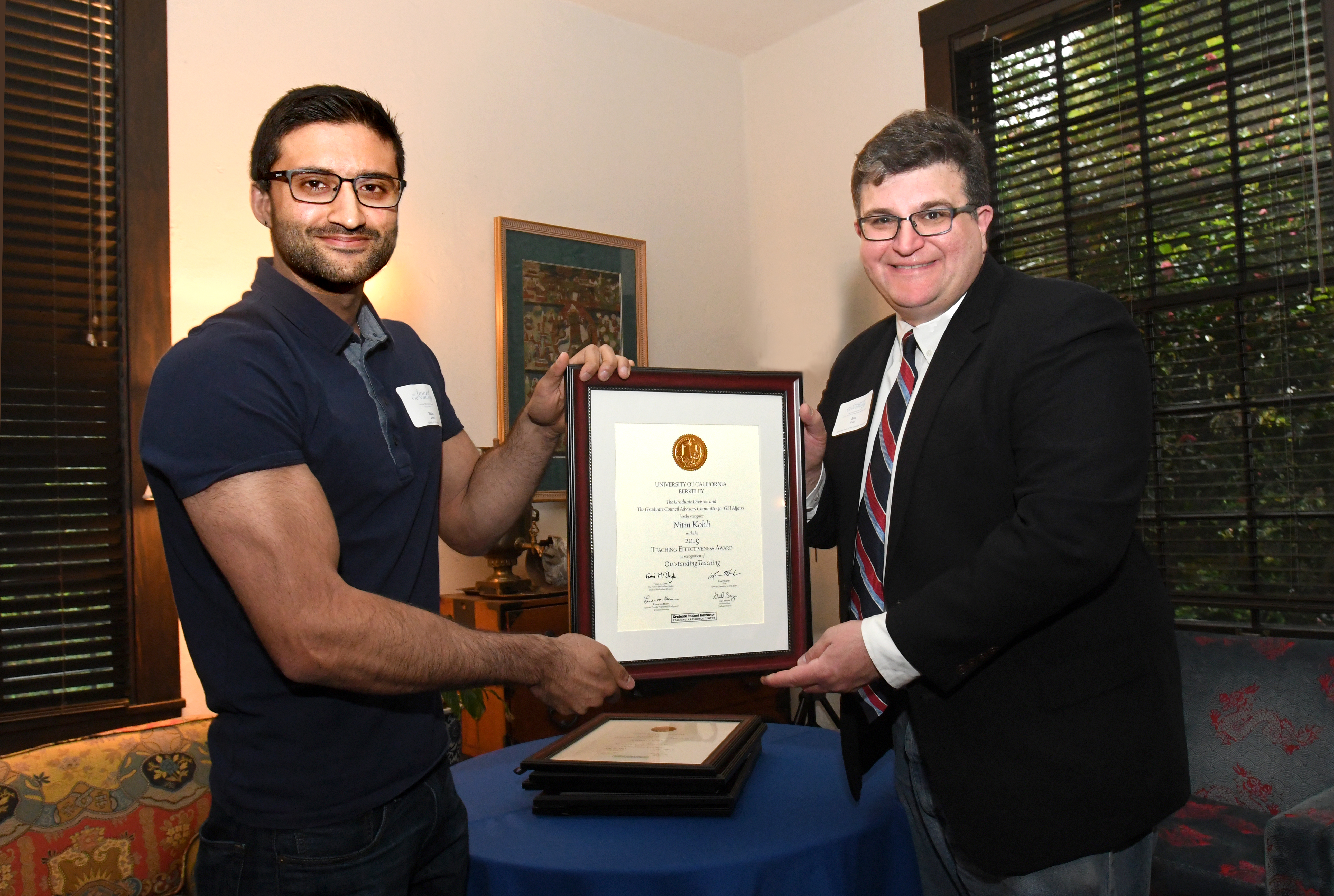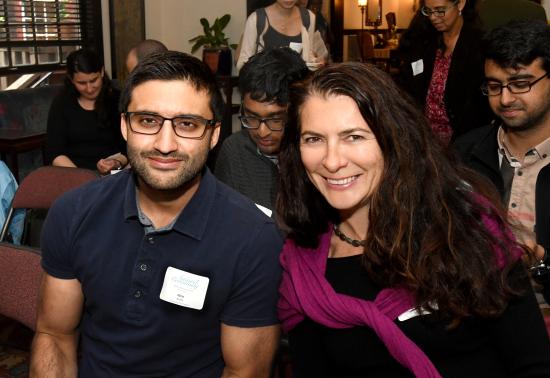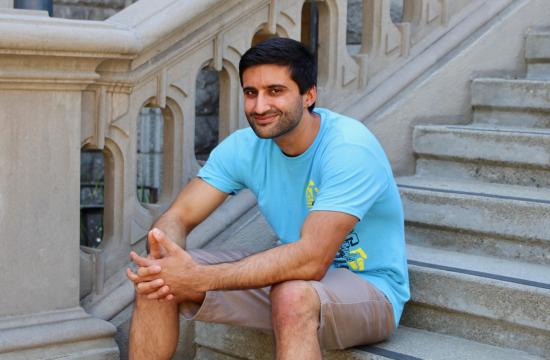For Nitin Kohli, teaching goes beyond just fulfilling his requirements as a graduate student instructor.
Like many I School students, Kohli is a dedicated teacher, while simultaneously pursuing innovative research as a Ph.D. student. His efforts were recently rewarded with the Teaching Effectiveness Award for Graduate Student Instructors (GSIs). This award recognizes the teaching ideas of Outstanding Graduate Student Instructors that are submitted as one-page essays to the Advisory Committee for GSI Affairs. Of numerous submissions for the award, Kohli was one of fourteen GSIs selected.
Kohli began teaching early in his academic career, as a teaching assistant (TA) as a UC Berkeley undergraduate for Statistics 2 in the Berkeley Summer Bridge program.
His current Ph.D. research spans the topics of privacy, security, and fairness. Kohli uses game theory and statistical techniques to develop theory and tools to safeguard information. Along with the technical aspects, Kohli also examines legal and policy mechanisms in privacy and security.

Prior to pursuing his Ph.D. at the I School, Kohli received his Master of Information and Data Science in 2015 and taught at UC Berkeley as an adjunct instructor and lecturer in the Statistics Department, while also working at a small startup developing algorithms to identify risk in healthcare settings, and Pandora. He also began lecturing at Berkeley in the same introductory statistics course where he first served as a TA, and in an upper division course in mathematical game theory.
“It was nice to come full circle four years later,” Kohli said. “Starting out as a teaching assistant and then lecturing for the same course.”
As many of his students will attest to, he is invested in the learning and success of those he teaches. “He is very knowledgeable about the topic,” one student shared, “and attentive to all the students' needs.”
“I think it’s great if students get A’s and they learn the material, but frankly, I’ve failed them as an educator if they don’t take the key learnings with them afterward,” Kohli said. “At the end of the day, if ten years down the line, when they’re working in practice, and they can’t reason about making these decisions of values in technology, then I’ve failed them.”
For Kohli the award represents more than just one class: “It was great to be acknowledged. I’ve had a commitment to teaching this entire time, teaching for social justice, teaching things to push forward kids who went to schools that didn’t have enough educational experiences in high school. The Teaching Effectiveness Award is a testament to all the time I’ve put in beforehand.
“For me, it was like the culmination of all the years of hard work I’d put in trying to find the right way to interact with students to make teaching more like a discussion amongst peers.”
In Kohli’s application essay for the award, he identified the problem of technically inclined students not having adequate access to education on the social implications of data science. To solve this, he developed an activity that would naturally bring the issues of certain data science practices into class conversations.
“The hope was that by creating seemingly apolitical technical tasks I could organically surface the issues raised in readings,” Kohli wrote, “forcing students to recognize and grapple with the realities of data science in practice while ingraining the learnings from these readings into their toolkit.”
As a result, students were more engaged, and, according to Kohli, able to see first-hand the social, political, and ethical implications of their work.
Kohli is an advocate for the use of other social disciplines to work through technical problems. He explained that the solutions to these technical problems do not exist in a vacuum but have real social implications in the world and must be approached holistically.
“Data science isn’t an academic discipline,” he explained. “It’s more like a set of tools that you use in the process of your work. The cool thing about being a data scientist is that you can draw on a lot of other disciplines to solve the problem you have. Why not, instead of trying to solve your version of the problem, just solve the problem?
“And that’s one thing that the I School is very good about because they draw on lawyers, sociologists, political scientists, economists, computer scientists, statisticians. The fact that there is a lot of breadth involved and a lot of thoughtfulness about the impact of technology on society, that made it more real for me.”
Kohli was selected for the 2018 Outstanding Graduate Student Instructor Award from the GSI Teaching & Resource Center for Professor Deirdre Mulligan's Info 188: Behind the Data: Humans and Values in Fall 2018 and Spring 2018. He was chosen for his excellence in explaining complicated concepts and at creating in-class activities that evoked participation and comprehension.
“Nitin is an extremely gifted instructor,” Mulligan wrote in an essay nominating Kohli for the award. “He is able to communicate highly-technical and dense information to students with a wide range of backgrounds.” Mulligan emphasized that the students in the course also had glowing evaluations of Kohli’s teaching abilities.
Eric Falci, Associate Dean of the Graduate Division and Professor Lane Martin, Chair of the Advisory Committee for GSI Affairs, presented the Teaching Effectiveness Award to Kohli and other recipients at the award ceremony on May 15, 2019.












